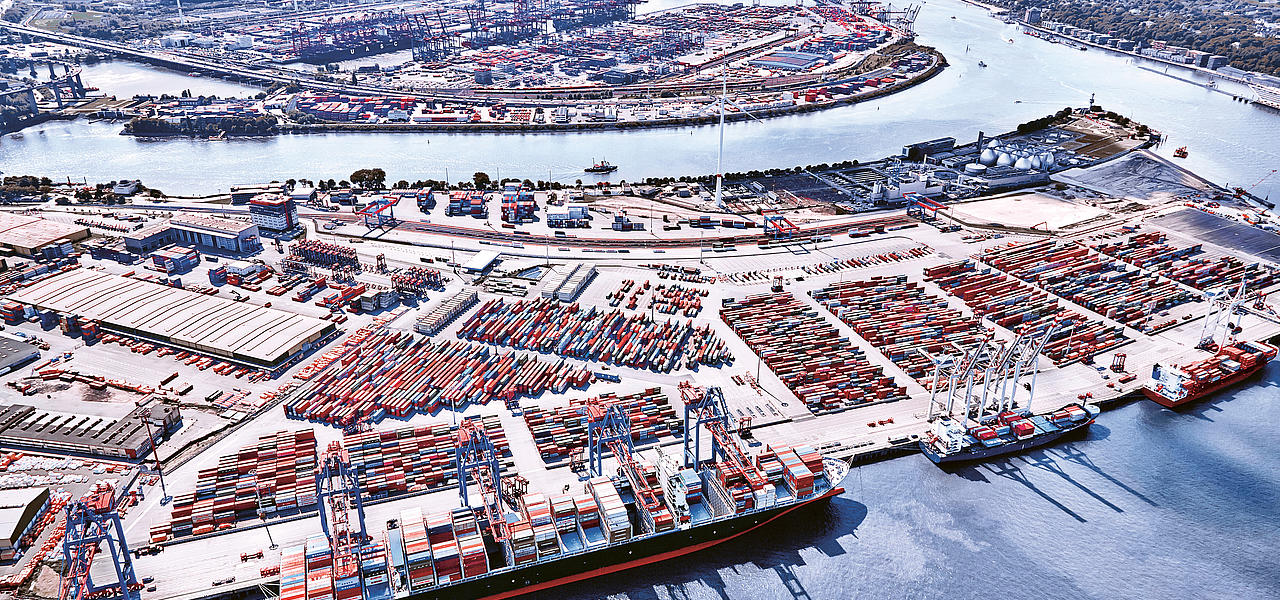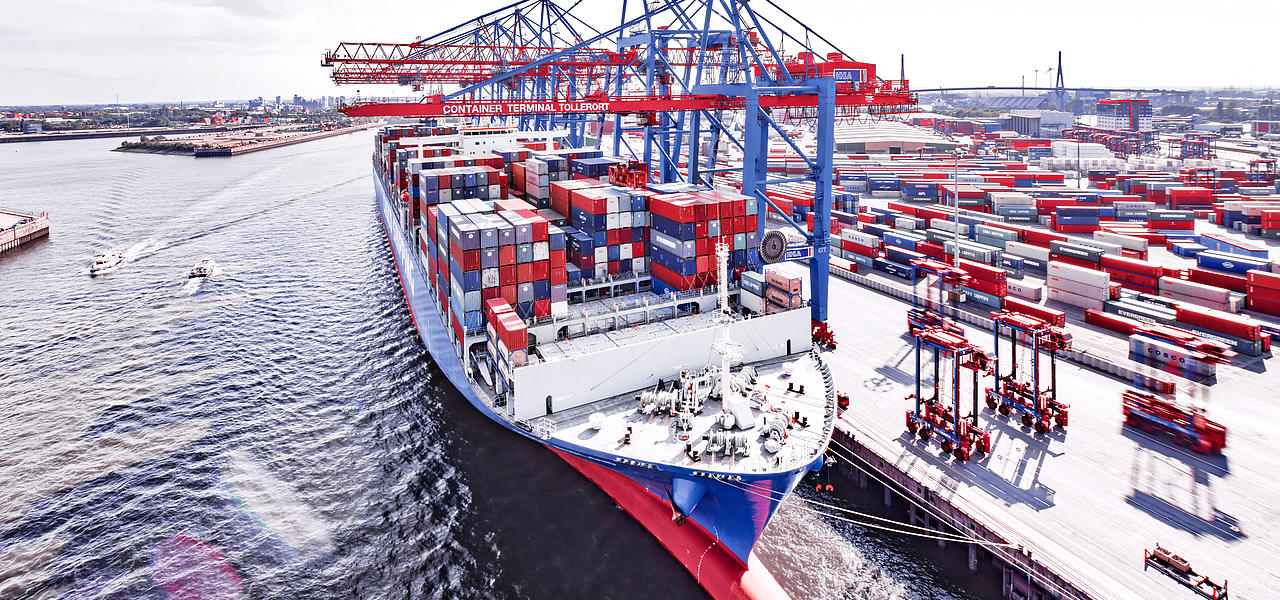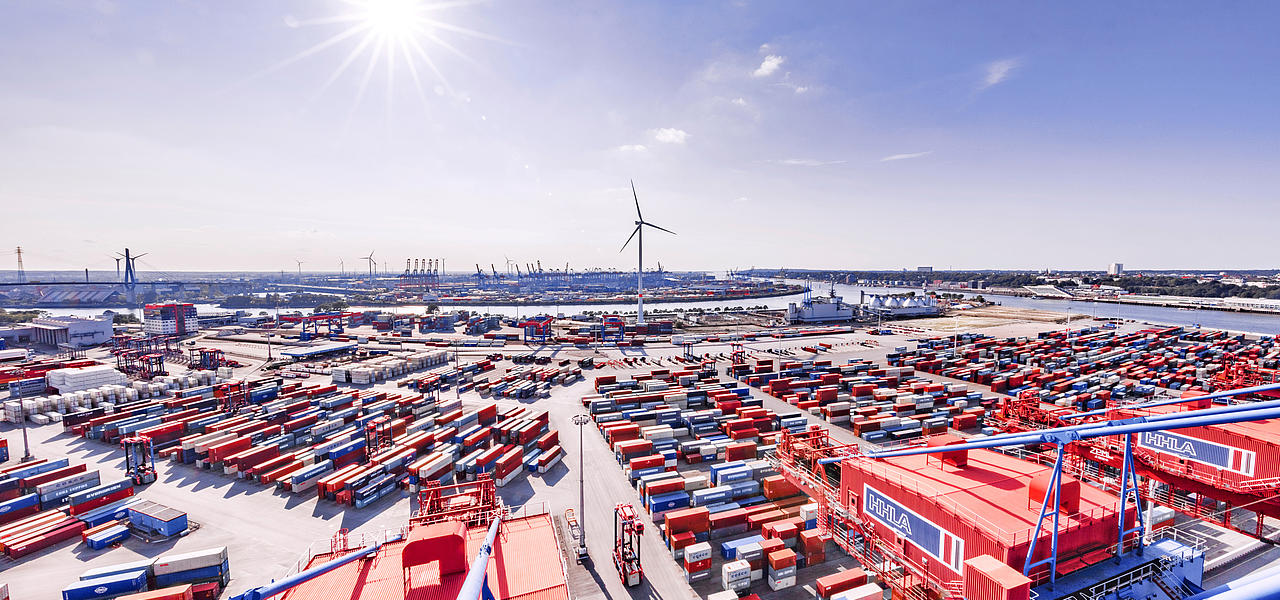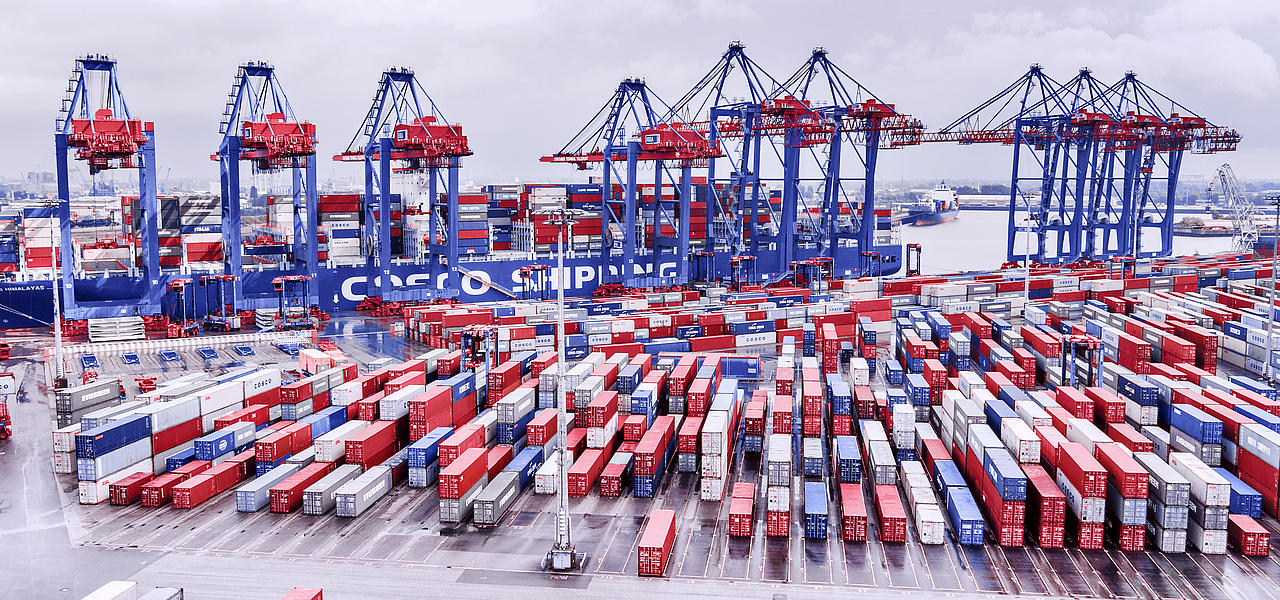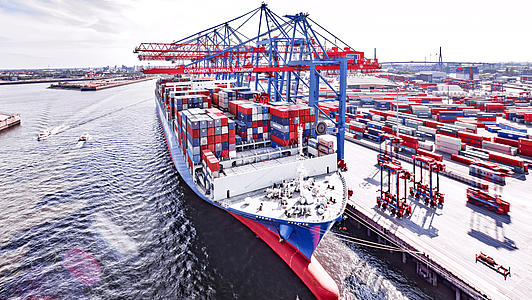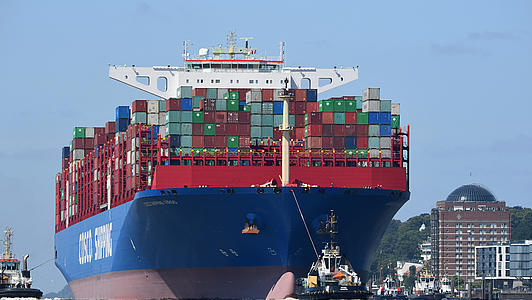COSCO Investment in HHLA Container Terminal Tollerort
As part of a partnership between Hamburger Hafen und Logistik AG (HHLA) and COSCO Shipping Ports Ltd. (CSPL), COSCO is provided with an interest of 24.99 percent in HHLA Container Terminal Tollerort (CTT). CTT GmbH is a branch of HHLA that is responsible for efficient and customer-oriented container handling in the Port of Hamburg. Following the completion of the investment screening process, HHLA and COSCO have signed the agreement for CSPL’s minority shareholding on 19 June, 2023. CTT will now be developed into a preferred handling location for HHLA’s long-term customer COSCO, where freight flows between Asia and Europe are to be concentrated.
The cooperation between HHLA and COSCO does not create any one-sided dependencies. On the contrary: it strengthens supply chains, secures jobs and enables value creation in Germany. Smoothly functioning logistics are a basic requirement for global trade flows and prosperity. Progress and security can only be achieved on the basis of cooperation as well as common goals and interests.
The cooperation between the two partners also strengthens the position of the Free and Hanseatic City of Hamburg as a logistics hub in the North and Baltic Sea regions and of the Federal Republic of Germany as an export nation.
Questions and Answers
Will the Port of Hamburg be sold to China?
No, COSCO does not gain access to the Port of Hamburg or HHLA. The transaction only affects a minority stake of less than 25 percent in HHLA Container Terminal Tollerort by the Chinese COSCO Shipping Ports Limited.
Does COSCO gain strategic influence over HHLA or the Port of Hamburg?
No, all important strategic decisions will continue to be made in the HHLA holding company or under the leadership of HHLA. HHLA remains an independent, listed company with the Free and Hanseatic City of Hamburg as the most important owner. We have been able to rely on this owner in recent weeks.
COSCO does not receive any exclusive rights at the Container Terminal Tollerort - the terminal remains open to container volumes from all customers. COSCO also has no access to strategic know-how. IT and sales data remain solely at HHLA's responsibility. German law continues to apply in all matters, including all collective agreements and works agreements.
Is Container Terminal Tollerort critical infrastructure?
As the parent company of Container Terminal Tollerort, Hamburger Hafen und Logistik AG (HHLA) has since 2018 been registered as an operator of critical infrastructure with regard to IT ("Control of the container terminals in the Port of Hamburg via a central IT system"). At the time of the formation of the contract with COSCO and the start of the investment review process in October 2021, Container Terminal Tollerort was not critical infrastructure according to the regulations at the time.
As part of the change in the KRITIS regulation, a new category of critical infrastructure was introduced in 2022, namely the "Operation of a handling facility in sea and inland ports with a freight volume of 3.27 million tonnes per year". Container Terminal Tollerort - like all other terminals in Hamburg - also falls under this definition and was registered according to the new requirements. Nothing changes at the root of the matter: the classification is primarily followed by increased obligations in relation to IT security, which the HHLA Group has been fully complying with and documenting since 2018.
Operation of the terminal, all customer relationships and the IT systems are controlled centrally by the HHLA Group. COSCO has no access and no decision-making rights in this regard. It is also a fact that the ground the terminal is located on will remain the property of the Free and Hanseatic City of Hamburg.
Has HHLA registered Container Terminal Tollerort as critical infrastructure too late?
HHLA has kept all the authorities involved fully and transparently informed at all times about the handling volumes at Container Terminal Tollerort during the ongoing investment screening process. The registration was completed within the deadline set by the Federal Office for Information Security (BSI) on 30 January 2023.
Will the port infrastructure remain the property of the Free and Hanseatic City of Hamburg?
Yes, the port infrastructure remains owned and controlled by the Free and Hanseatic City of Hamburg. Hamburg's Mayor Dr. Peter Tschentscher reaffirmed this in a statement an 26.10.2022: “The Port of Hamburg remains public property. The Senate and the Hamburg Port Authority ensure that our port is operated independently of individual shipping companies or port companies exclusively in accordance with public law requirements and in the interest of the common good.”
Does HHLA retain sole control over all key decisions?
Yes, HHLA retains sole control over all major decisions. COSCO does not receive any exclusive rights at the Container Terminal Tollerort - the terminal remains open to container volumes from all customers. COSCO also gains no access to strategic know-how. IT and sales data remain solely at HHLA's responsibility. German law continues to apply in all matters, including all collective agreements and works agreements.
Does the cooperation between HHLA and COSCO create one-sided dependencies?
No, the cooperation between HHLA and COSCO does not create one-sided dependencies. On the contrary: it strengthens supply chains, secures jobs and promotes value creation in Germany. Smoothly functioning logistics are a basic requirement for global trade flows and prosperity. Progress and security can only exist on the basis of cooperation as well as common goals and interests. The cooperation between the two partners also strengthens the position of the Free and Hanseatic City of Hamburg as a logistics hub in the North and Baltic Sea regions and of the Federal Republic of Germany as an export nation.
How does HHLA and Container Terminal Tollerort benefit from a COSCO minority interest?
Container Terminal Tollerort and its employees will benefit from the minority stake: Tollerort will become a preferred hub for Asian traffic in the North Sea and Baltic Sea regions. In view of the competition between the ports in the North Range, it is crucial for Hamburg's positioning to secure cargo volumes. Every third container that is handled in Hamburg comes or goes to China. COSCO has been a reliable business partner of HHLA for 40 years. Securing and strengthening this customer relationship is in the interests of HHLA, the city of Hamburg and the industrial nation of Germany. In this way, we ensure the necessary utilisation of the Container Terminal Tollerort and thus employment in the Port of Hamburg. We want to further develop the Container Terminal Tollerort over the next few years, especially in view of the increase in ship sizes.
